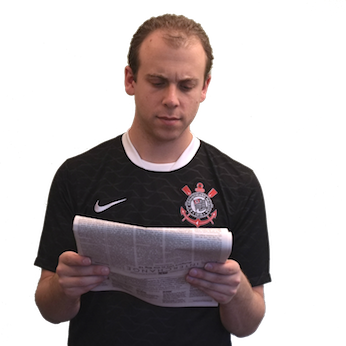The story of the year in sports has been the downfall of the NFL’s institutional standing at a time when it is still close to its pinnacle in popularity if not expanding. The NFL and the sports media companies that cover it have dealt with some serious issues this year, from domestic abuse all the way to child abuse with lots of other abuses between. At every step of the way, they/we have proven to be rigid, self-impressed, and unable to adequately or elegantly meet the challenges it faces. This year-long travail continued in the news this week with three new stories covering the poor treatment of NFL cheerleaders, a fan who finds himself unable to be a fan anymore, and some insight from ESPN’s ombudsman on his way out of the position.
Buffalo Bills Cheerleaders’ Routine: No Wages and No Respect
by Michael Powell for the New York Times
Mark Bittman wrote an op-ed in the New York Times yesterday where he argued that all of our issues from police brutality to minimum wage to climate change are all connected and should be confronted that way. I imagine he would draw a direct line from the casual and incomprehensible abuse of power between the NFL and its cheerleading teams to the other high-profile social issues of our times. For myself, I can say that I simply do not understand the NFL’s treatment of its cheer squads from a financial perspective. Paying and treating them fairly would have no negative impact on NFL teams’ bottom lines. It would be like a single drop escaping from a bucket the size of Rhode Island.
The National Football League, that $10 billion “nonprofit” business, is the occasionally repulsive gift that keeps on giving. An all-American empire, the N.F.L. is structured with various and many principalities and emirates, and fixers who cushion the leadership from the unsightly details of league business as usual.
The team’s contractor handed the women a contract and a personnel code, and told them to sign on the spot. The team dictated everything from the color of their hair to how they handled their menstrual cycle.
The contractor required they visit a sponsor who was a plastic surgeon. He offered a small discount if they opted for breast augmentation and other services. Larger breasts, however, were not a condition of nonpaid employment.
The Jills’ subcontractor, Stejon Productions, readily acknowledges that it is a front operation.
The National Football League, as is its practice, has little to say on the question of uncompensated work by these high-profile women. Goodell offered his patented I-know-nothing routine.
“I have no knowledge,” he wrote in an affidavit, of the Jills’ “selection, training, compensation and/or pay practices.”
A contract surfaced that laid out the terms and was signed by Goodell. A league lawyer asserted that Goodell’s signature was affixed by a stamp.
Vijay Seshadri Struggles With Watching Football
by Liz Robbins for the New York Times
Vijay Seshadri is a poet who hurtled into the public consciousness when his poem, The Disappearances was published by the New Yorker in the issue following 9/11. In this small profile, Seshadri expresses feelings of conflict and loss over his Sunday routine which used to consist of football, football, football; no longer.
I feel a little reluctant to tell you what else I do on Sunday. I feel bad about it now. I feel conflicted. Usually in the fall I would watch football. I was a Steelers fan. My parents still live in Pittsburgh and I went to high school there. I always felt like somehow that was one of the things in my life that ennobled me.
So this year has been very bad for me in terms of the normal rhythms of a Sunday. I can’t really comfortably sit down and watch the pregame shows. It’s weird if you’re a sports fan to have all this karmic weight bearing down on this experience that you approached with a certain amount of innocence.
Inside the ESPN Empire
By Chris Laskowski for Slate
Like many enormous companies, ESPN has an ombudsman, someone within the organization but independent from its normal hierarchy who can investigate disputes and, in the case of media organizations, comment publicly on them. Richard Lipsyte has been ESPN’s ombudsman for the last year and a half but has decided to leave the post. On his way out, he gave an interview to Chris Laskowski and Slate magazine. It’s a revealing look inside the sausage machine of sports news and surprisingly (at least to me,) Lipsyte flips the script and puts the majority of blame for the tenor of ESPN’s “see no evil, hear no evil” coverage on its fans.
The tension here isn’t just between ESPN and its business partners in the NFL, NBA, and MLB. It’s between ESPN and its viewers, who mostly don’t seem to care whether the leagues are doing evil.
Lipsyte says he received close to 20,000 emails during his time as ombudsman. Lots of viewers complained about specific on-air issues—why is this person still on the air, or why does ESPN hate my favorite sport, particularly if that favorite sport is hockey. But what really bothered ESPN’s core audience, Lipsyte says, was “the intrusion of what they called societal issues into what was, in a way, kind of a sacred place. People so often come to sports as this sanctuary from the real world, where they can sit in their living room with their family and not be assailed by anything that will upset them.” For some, that upsetting thing was the sight of football player Michael Sam kissing his boyfriend to celebrate being drafted.

